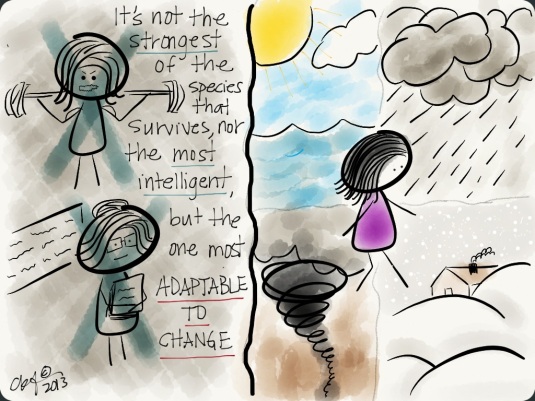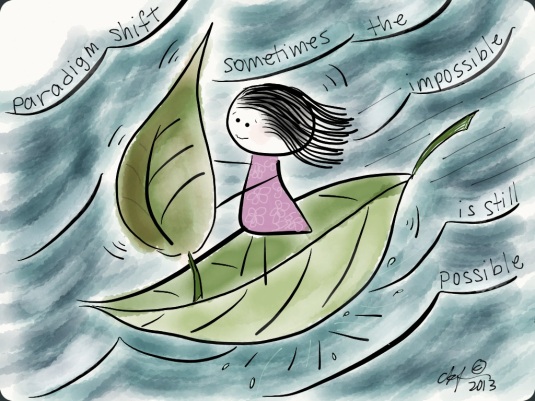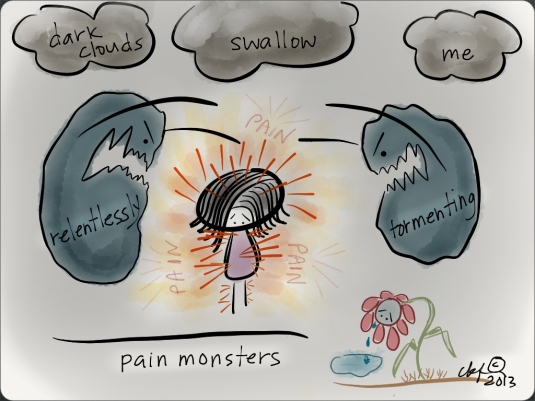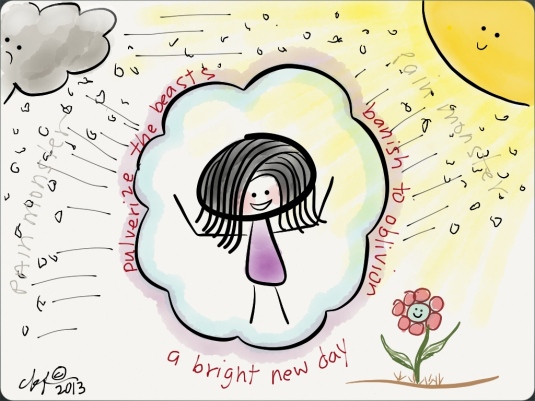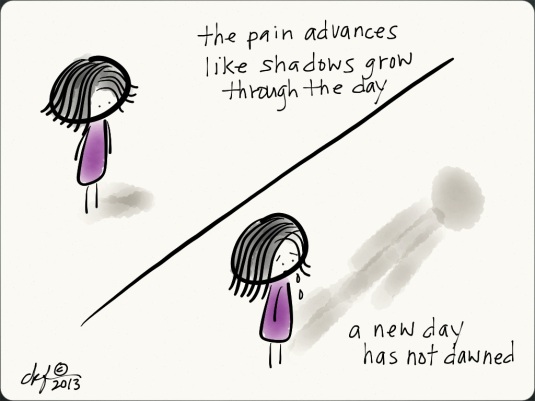May is national MCS (Multiple Chemical Sensitivity) month. Briefly, MCS is defined as suffering “multi-system illnesses as a result of contact with, or proximity to, a variety of airborne agents and other substances.”
According to MCS-America, MCS affects over 48 million men, women and children of all races. There are many substances that affect those with MCS, some of which include fragrances, cleaning products, laundry products, air fresheners and scented candles, secondhand smoke, pesticides, paints, solvents, certain foods, preservatives, beauty and personal care products, etc, etc. Symptoms can range from mild annoyances to life-threatening reactions.
As I wrote in my previous posting about Human Canaries, I am a person who is highly sensitive to low levels of fragrances and chemicals. They make me very sick and I could be debilitated in bed for at least a couple of days after an exposure…and an exposure could be as simple as getting a whiff of someone’s perfume or walking by an air freshener.
FRAGRANCE SENSITIVITY
The remainder of this post will focus mainly on fragrance sensitivities, which is a part of MCS. Studies are suggesting that fragrances are becoming an increasing concern in general, and definitely for me because of its increasing prevalence. There are more and more fragranced products that are available, and more products where the fragrance is designed to last longer (as I have seen in commercials for certain laundry products).
Health Concerns
Research has discovered a number of toxic and undisclosed chemicals in fragranced products. Prior to the 1970s, perfumes were primarily made from natural ingredients like flowers and herbs. However, perfume formulations have since changed. Today, perfumes are over 90% synthetic. These fragrances can contain up to several hundred chemicals, many of which are toxic even at low levels and can be dangerous when inhaled or applied to the skin. Low levels can accumulate and small exposures over time can lead to health problems. Common fragrance chemicals have been found to be toxic to the neurological, respiratory, immune, and endocrine systems. The skin is the largest organ in the body and absorbs chemicals, which can affect other organs in the body. Also, according to the American Academy of Dermatology (AAD), fragrances are considered a leading cause of contact dermatitis.
Fragranced Products
Fragranced products are widely used in homes, businesses, institutions, and public places. Some that are of concern include:
- Laundry products – detergents, fabric softeners and dryer sheets
- Scented candles and air fresheners
- Personal care – soap, shampoo, hairspray, gels, lotions, sunscreen, deodorants
- Perfumes, powders, oils
- Cleaning supplies
Environmental Impact:
Fragrance chemicals enter and persist in the environment. They have been found in the air, soil, water bodies and drinking water, and are difficult and costly to remove once they have entered the environment.
Fragrance Regulation:
The fragrance industry is mainly self-regulated. No law in the United States requires disclosure of any ingredients in a chemical mixture called “fragrance” even if the chemicals are toxic or carcinogenic. Depending on the type of product, the word “fragrance” may not even need to be listed. Certain regulated products only need to list “fragrance” or a similar term, as an ingredient, but not the ingredients that make up the fragrance, even though an individual “fragrance” can contain up to several hundred chemicals. Generally, consumer product ingredients are exempt from disclosure, some of which are protected as “trade secrets.”
Alternatives
There are many resources on the internet that include healthier and environmentally responsible alternatives. Here are just a handful of suggestions:
- Choose products without fragrance, scent or perfume.
- Help institute or suggest a fragrance-free policy at work in consideration of those who are sensitive and become ill.
- Baking Soda – a versatile natural cleaner, scourer, odor absorber, deodorizer, and is a natural fabric softener and deodorizer when added to the wash water prior to adding clothes.
- White Vinegar – another versatile natural cleaner, grease cutter, stain remover, removes mildew, odors, and is a natural fabric softener, deodorizer and reduces static cling when added to the wash or rinse water
- Lemon – has effective antibacterial qualities and can dissolve all sorts of grime.
- Use better ventilation and consider plants that absorb and reduce odors, rather than using a potentially toxic air freshener that masks the odors but does not clean the air.
- Hydrogen peroxide – for cleaning
- Fresh coffee grounds – absorbs odors
- A natural or organic ingredient, or essential oils do not always mean it’s safe. Some can be harmful and emit hazardous chemicals. (Some natural plant smells alone that make me very ill are lavender, gardenia and stronger fragrant flowers.)
Remember, being “clean” does not have a smell, and changing just one thing is a positive step to a healthier environment and healthier living.
Consideration for people with sensitivities
Even for those who do not experience any reactions to chemicals, fragrances, allergens, etc., or do not notice their existence, we might consider healthier alternatives for our own sake, the environment, and for those whose lives are greatly altered and tormented by their presence.
Please be considerate and respectful of those who say they are noticing a fragrance, chemical or allergen that is making them ill, whether it is something wafting in the environment or a product being used by someone they are with. It is a very real problem for us and leads to loneliness and involuntary (or necessary) isolation from relationships and activities that we so much want to be a part of. Personally, my doctor said my only option is to avoid any of my irritants called fragrances and chemicals. Health should be a top priority. Judgmental reactions and criticisms do not help. Some people are so debilitated from what many would consider low or unnoticeable levels that they have had to resort to near total isolation to protect their health. I believe this is the case with some of my blogging friends who have MCS.
Friends, family and others who are considerate, respectful and even stand up for us as an advocate shows us that we are important to them, and that we matter. What an important and necessary feeling to experience!
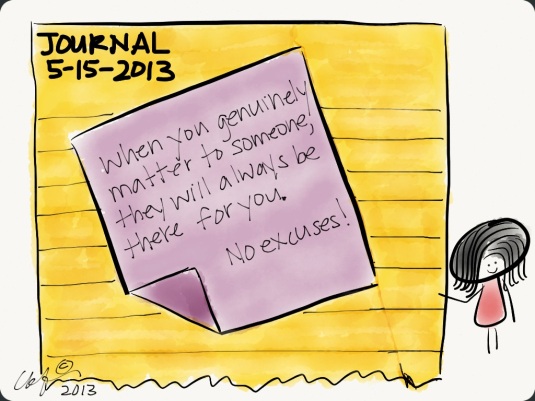
Here is a closing thought to consider: When you genuinely matter to someone, they will always be there for you. No excuses, no lies, no broken promises.
Related articles:

